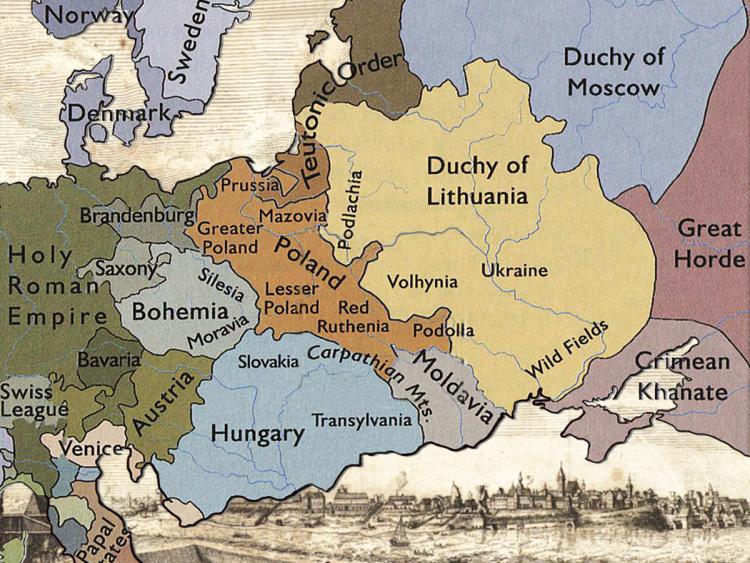Since the beginning of Russia's war of aggression against Ukraine on February 24, 2022, questions around spaces and borders have increasingly appeared on the agenda of Eastern European studies. The contributions to the Copernico Portal’s newest area of focus demonstrate the important role played by space and border-related debates and the processes of appropriation and reinterpretation associated with them.
Text
The basic features of the debate are by no means new: The discussion about the Cold War and especially the idea of Central Europe in the 1980s and 1990s, the disintegration of the Soviet Union and Yugoslavia, and the enlargements of the European Union have repeatedly stimulated and challenged our thinking about spaces and borders.
The relationship between Russia and Ukraine already became the focus of attention in 2014, after Russia's annexation of Crimea and the start of the war in eastern Ukraine. Now, however, the war of aggression, which continues to be waged in defiance of international law, has given this conflict an epoch-making and global significance. The aggressive imperial rhetoric and policies of Vladimir Putin's regime have created a new consciousness for thinking about space and politics and have opened up a discussion about the necessary decolonization of the history of Russia and the Soviet Union, in the course of which the question of Ukraine as an actor in European history will have to be completely redefined.
Copernico has already published a whole series of articles on the war against Ukraine. The contributions in this latest thematic module are now intended to open up a comparative view of the connection between space, borders, politics, and society: The topics range from border demarcations of various kinds to cultural and natural landscapes, and from urban spaces to travelogs to highlights of life on a border.


